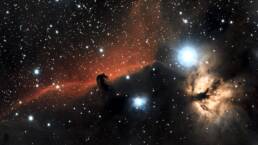The TN category permits citizens of Canada and Mexico to enter the U.S. to provide prearranged professional services to a U.S. entity. The TN nonimmigrant classification is a product of the North American Free Trade Agreement (NAFTA) and aims to strengthen trade relations between the United States, Canada, and Mexico. Under the regulations, there are 63 professional occupations under which an individual may qualify. One such occupation is an astronomer.
How to Qualify for TN Status as an Astronomer
To qualify for TN visa status as an astronomer, regulations require an individual to possess one of the following:
- Bachelor’s degree.
- Licenciatura Degree.
Please note that U.S. employers often require a Ph.D. in physics, astronomy, or a related field for jobs in research or academia or for independent research positions in industry.
Typical Job Duties of an Astronomer
According to the U.S. Department of Labor, astronomers study planets, stars, galaxies, and other celestial bodies. They use ground-based equipment, such as radio and optical telescopes, and space-based equipment, such as the Hubble Space Telescope. Astronomers typically work on research teams together with engineers, technicians, and other scientists.
Astronomers’ typical job duties include:
- Developing scientific theories and models that attempt to explain the properties of the natural world, such as the force of gravity or the formation of sub-atomic particles.
- Planning and conducting scientific experiments and studies to test theories and discover properties of matter and energy.
- Writing proposals and apply for funding to conduct research.
- Performing complex mathematical calculations to analyze physical and astronomical data, such as data that may indicate the existence of planets in distant solar systems or new properties of materials.
- Designing new scientific equipment, such as telescopes and lasers.
- Developing computer software to analyze and model data.
- Writing scientific papers that may be published in scholarly journals.
- Presenting research findings at scientific conferences and lectures.
Many astronomers work in basic research with the aim of increasing scientific knowledge, while others work in applied research. They use the knowledge gained from basic research to effect new developments in areas such as energy storage, electronics, communications, navigation, and medical technology.
Application Process
For citizens of Canada, applicants can submit a TN petition to Customs and Border Protection (CBP) at any land port of entry or airport preclearance location throughout Canada. A decision will be made on the spot, and, if approved, the applicant may begin working in the U.S. the same day.
For citizens of Mexico, applicants need to schedule and attend an in-person interview at a U.S. Embassy or Consulate in Mexico. Upon approval, the applicant will be issued a TN visa inside their passport, which can then be used to gain entry to the U.S. in TN status.
If you study or work as an astronomer and want to expand your career to the United States, be sure to contact Berardi Immigration Law to schedule a consultation with one of our attorneys today!
Published 19 November 2020
Ready to have Berardi on your side?
Whether you’re a business looking to hire or a professional hoping to relocate, immigration law can be complicated. But you don’t have to do it alone. Put our experience to work for you.



